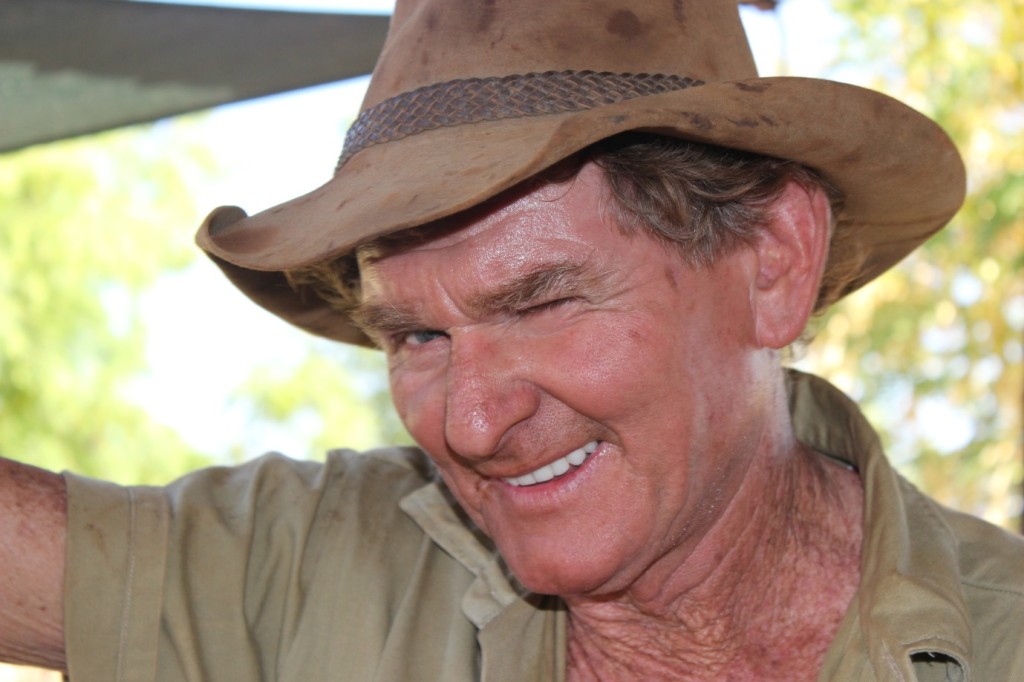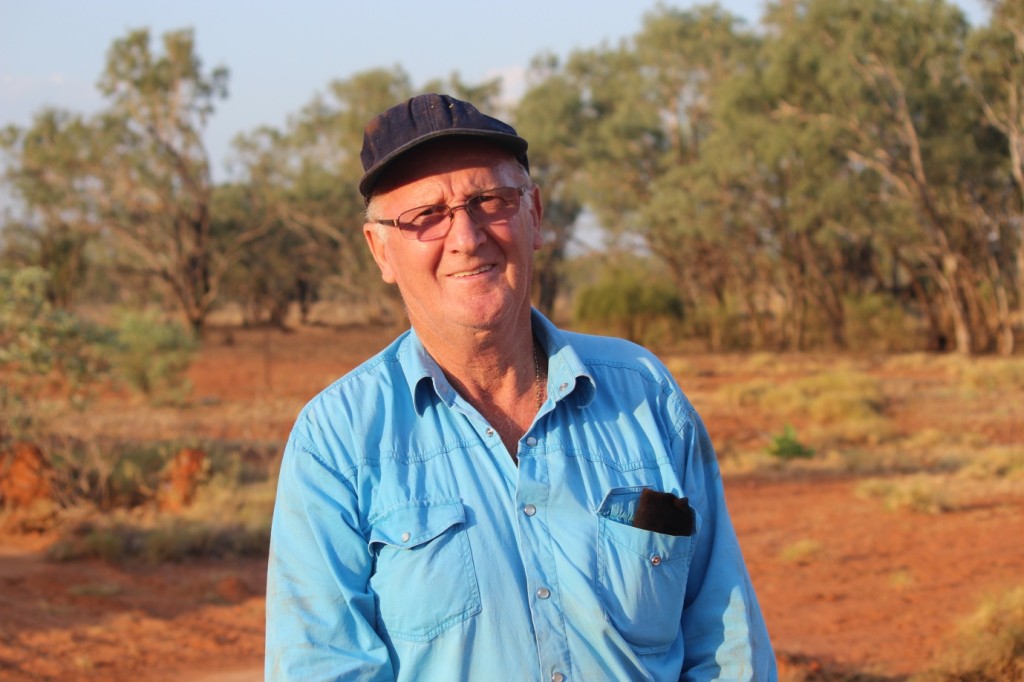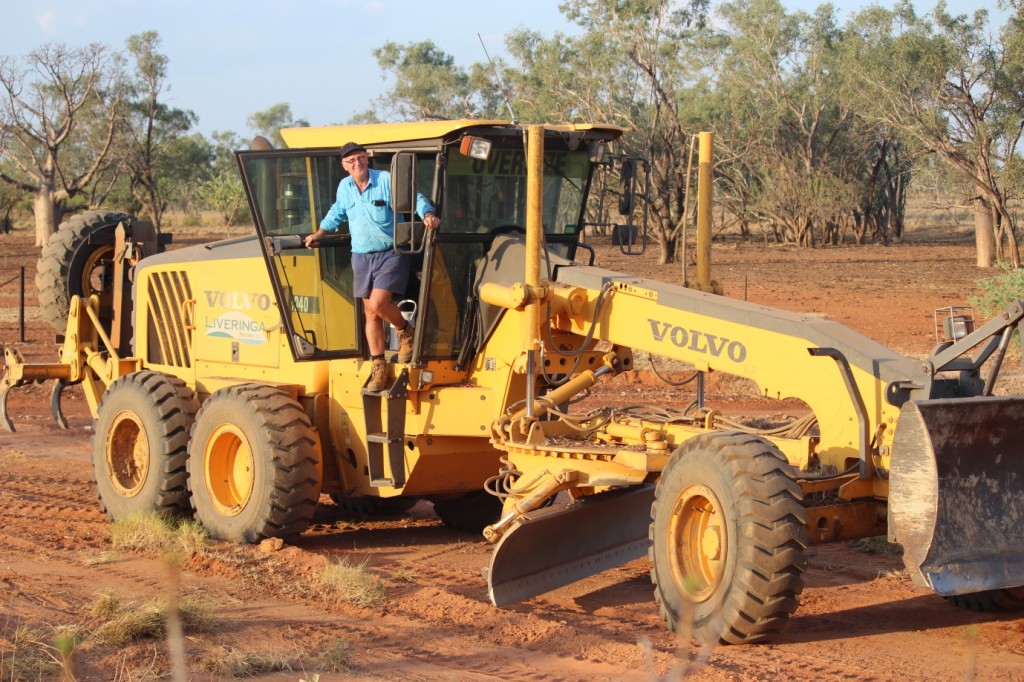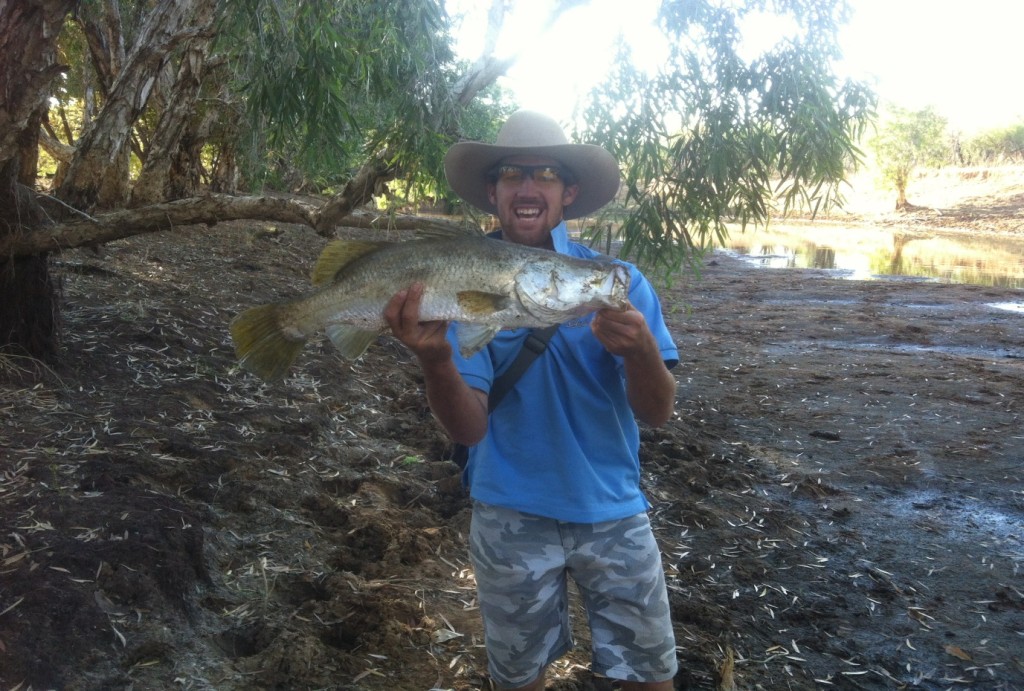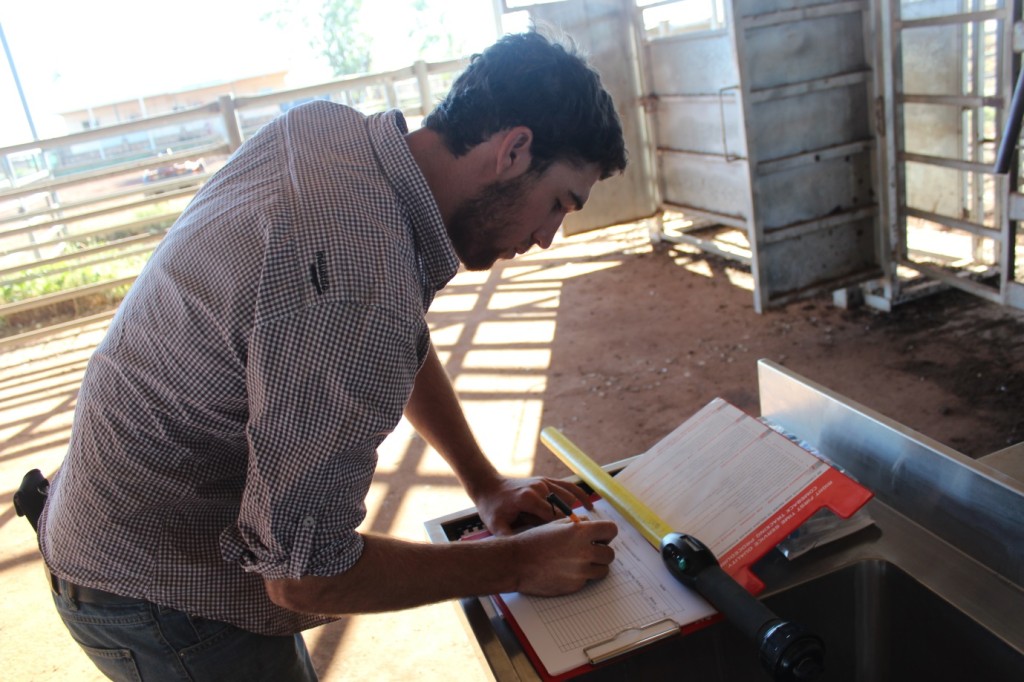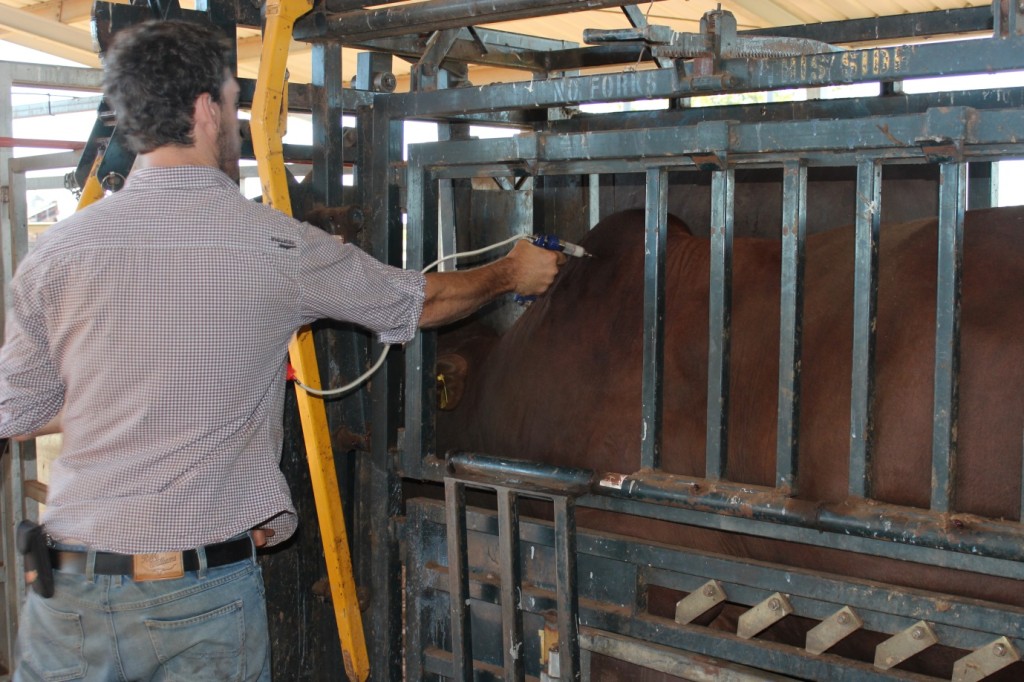Liveringa station is back!
Host: Liveringa Station
Written by – Karen O’Brien, Manager, Liveringa Station.
Do you remember our previous hosts Liveringa Station? True to the nature of station life, they were so busy during their hosting week they didn’t have a chance to introduce the whole crew. Now, as the season winds up Karen would like you to meet the rest of Liveringa . . . – CS Team.
The bore run with Pigsy
 Windmills like this one power the pumps at many of our bores.
Windmills like this one power the pumps at many of our bores.
The job of the Boreman is possibly the most important one on a station. “Pigsy” is responsible for ensuring that our cattle have access to water at all times. During the dry season – particularly late in the season like now, the lack of moisture is evident everywhere. It’s tough to be a cow right now!
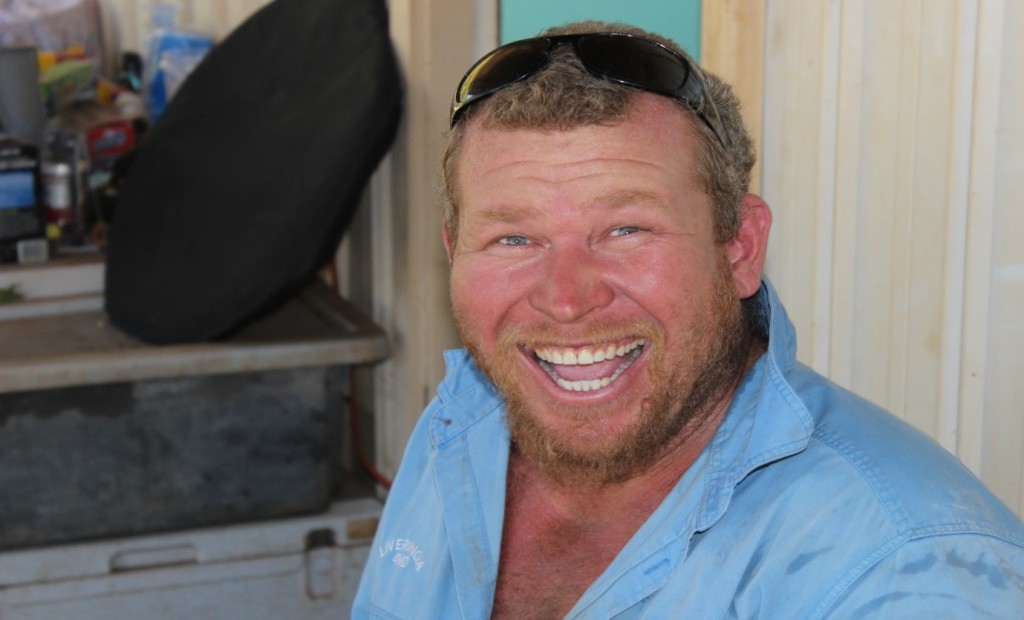 Pigsy’s big smile and even bigger personality make him a Liveringa icon. He’s practically a tourist attraction!
Pigsy’s big smile and even bigger personality make him a Liveringa icon. He’s practically a tourist attraction!
Driving literally thousands of kilometres every week, Pigsy spends his days keeping tanks full and making sure the 22,000 head of cattle on Liveringa don’t run out of water. Water is pumped from bores to a tank and is gravity fed to cattle troughs. These bores are imperative and allow the cattle to graze out into otherwise unwatered country through the dry season. Towards the end of the dry, there is little to no surface water left throughout the paddocks. This is a busy time for the boreman as the cattle “hit the bores” and rely solely on what we can pump from the ground.
Our boreman is constantly on the go; starting pumps, moving portable electric generators, and mending fences, troughs, and pipes. When bores break down they need to be pulled out of the ground and damaged/faulty parts replaced. Constant maintenance is required on windmills, pumps, and fences.
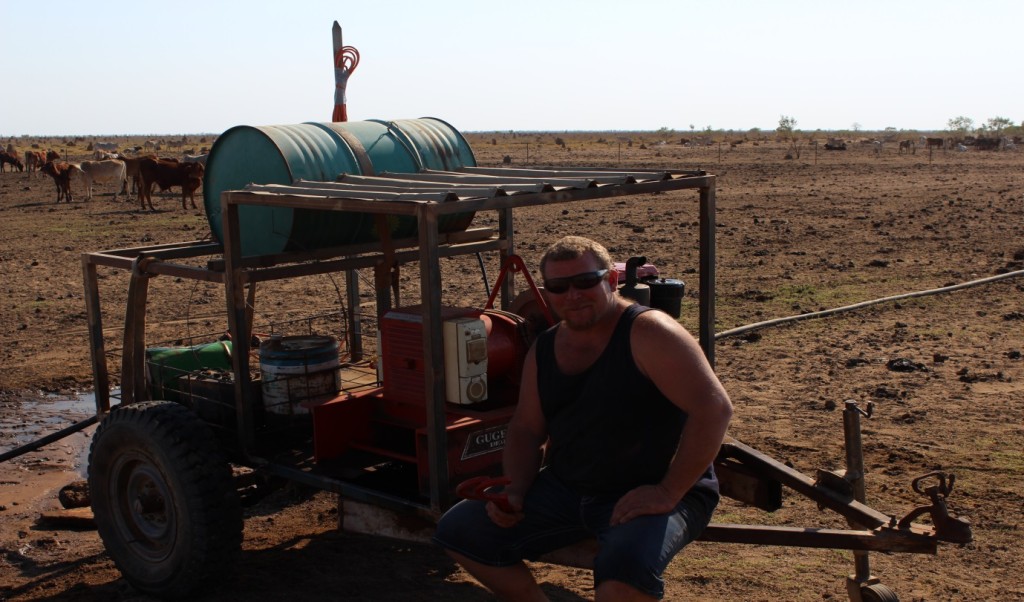 Pigsy with a portable generator.
Pigsy with a portable generator.
There are also a number of dams on Liveringa that fill during the wet and hold water for most of the year. Pigsy will also spend a lot of time late in the dry checking and pulling cattle out of these dams that may now have become muddy bogholes.
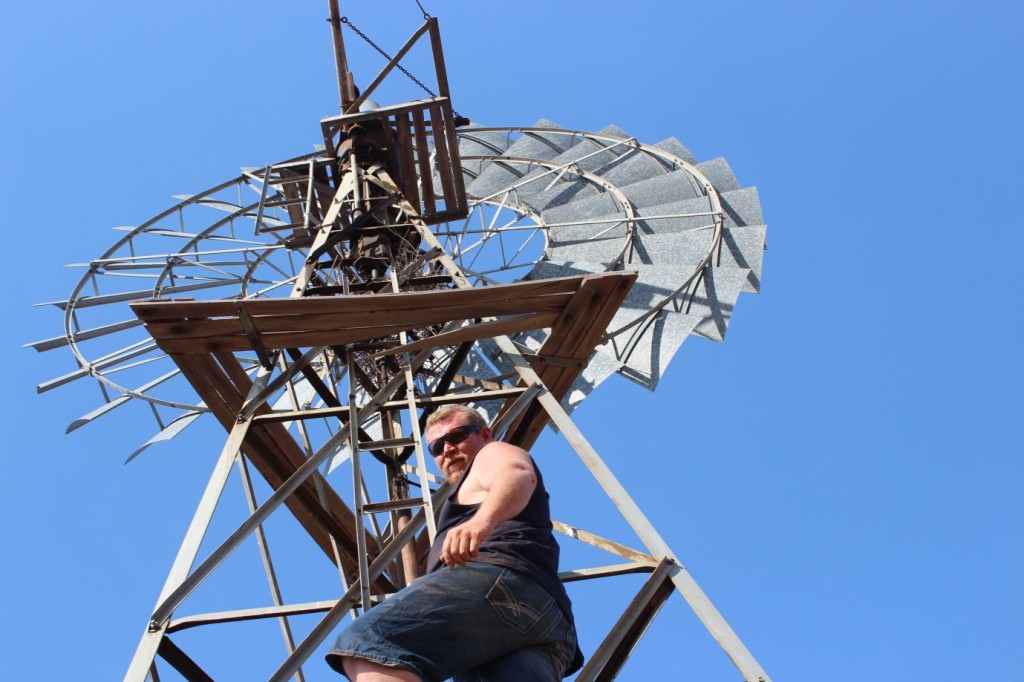 You wouldn’t want to suffer from vertigo in this job!
You wouldn’t want to suffer from vertigo in this job!
“GREENER PASTURES”
The road train is another essential tool of station operation. Depending on the age/size of the cattle, you can fit between 150 and 250 head on three two deck trailers. It is used to cart various cattle from yard to yard and paddock to paddock. Apart from the rare trip to Broome with sale cattle, the truck and trailers barely see the bitumen. The station roads are often bush tracks and depending on the time of year, the driver has to contest with mud, sand, and bull dust.
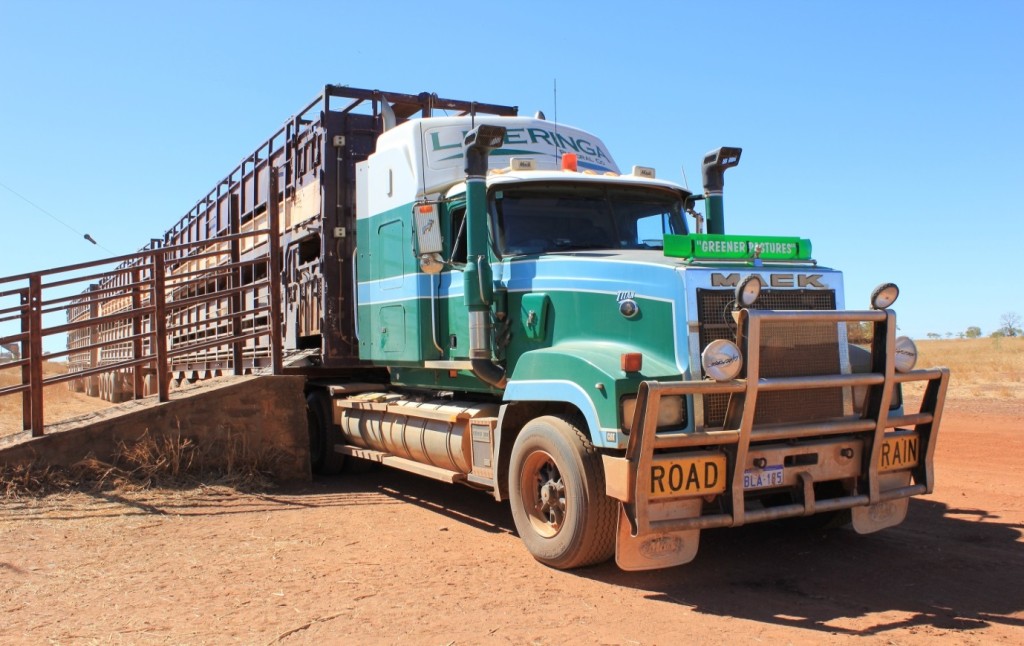 Liveringa’s road train “Greener Pastures”.
Liveringa’s road train “Greener Pastures”.
During the mustering season, Ralph is flat out. Despite the pressure, Ralph remains a conscientious and careful driver. He contends with early starts (loading) and late finishes (unloading at each destination).
 Greener Pastures ready for loading.
Greener Pastures ready for loading.
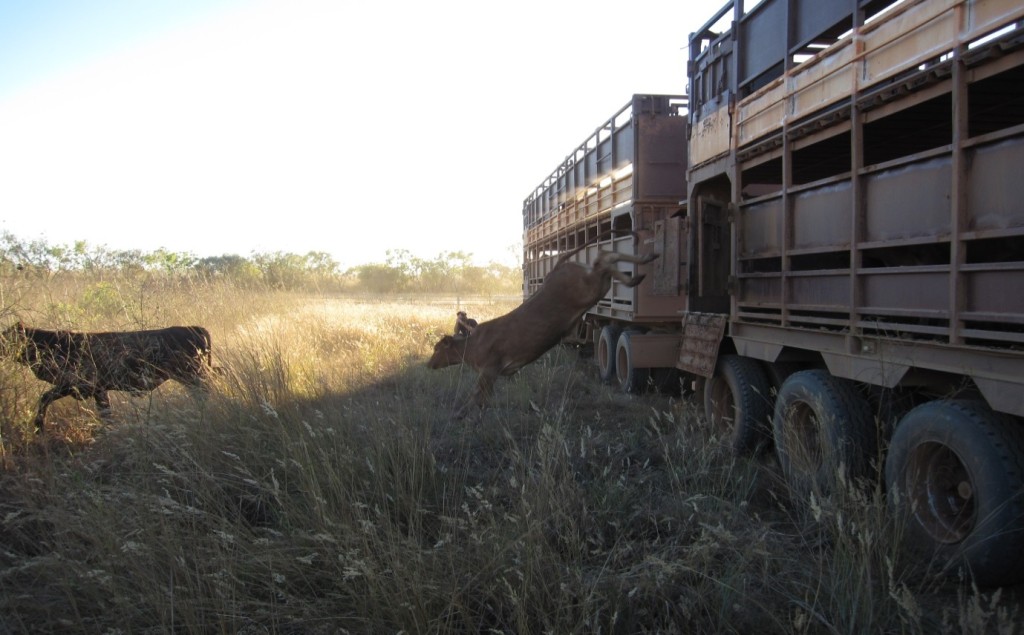 Cattle being unloaded into their new paddock.
Cattle being unloaded into their new paddock.
Most of our sale cattle and cattle going south are transported by contracted livestock carriers. Throughout the season, our livestock team becomes very proficient at loading and unloading road trains.
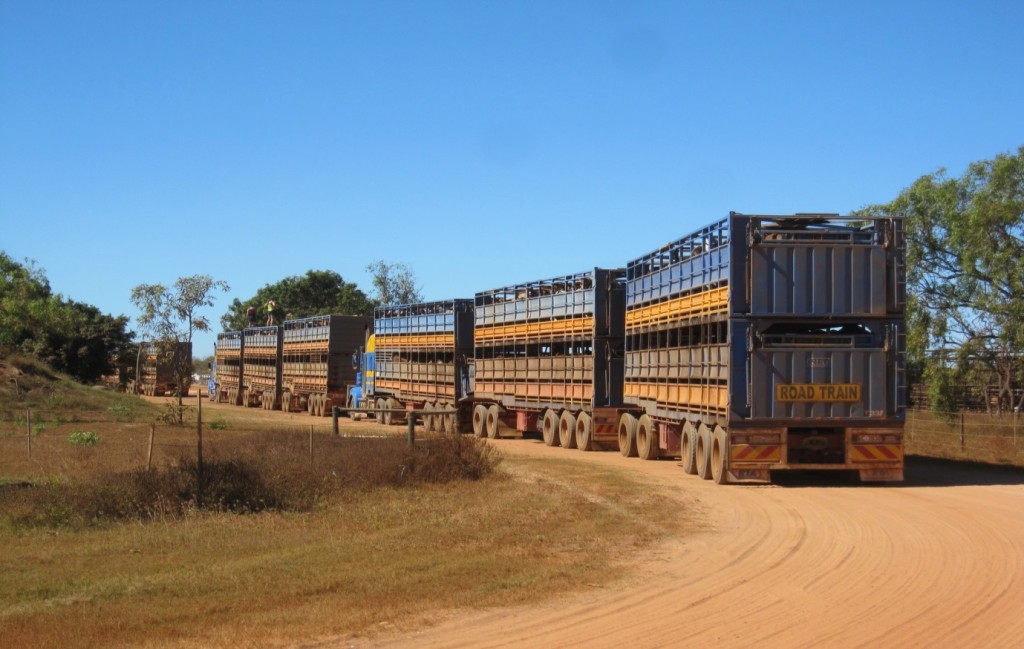 A convoy of road trains getting ready to head out.
A convoy of road trains getting ready to head out.
Ken McNabb
Ken primarily drives the grader but also operates other heavy machinery on Liveringa, such as the dozer, loaders and excavator.
After the wet season, station roads are rough, overgrown, and/or washed away. Ken will spend most of the first six months of the year on the grader re-grading already existing bore roads, trucking roads, fence lines, and firebreaks.
Later in the dry season, Ken’s focus will tend to be on other earthworks such as cleaning the silt out of the bottom of dried-up dams, which will help to prevent cattle bogging and allow the dams to hold more water next year. His job this year has also entailed the installation of several kilometres of poly water line.
Further to this, his assistance is often essential when fighting bushfires as he is able to get ahead of the fire and grade a firebreak in its path.
Wooly
My name is Matthew Stapleton AKA Woolly. I came from the south coast of NSW in the heart of dairy country. I left my job at Bega Cheese to follow my love across the country not knowing that I would fall in love again with the unique experience the Kimberley provides.
I found myself here at Liveringa with my girlfriend (Emma) who is a ringer on the station. Liveringa took me on and gave me a place to call home for the last five months.
They buddied me up with the wisest old ringer in the Kimberly (Alf) to learn the tricks of the trade in semen testing bulls.
This became my passion for the first two months at Liveringa. I was fortunate enough to have 60 years of experience in cattle knowledge thrust upon me in eight weeks, along with the countless recollections of Alf’s past experiences of taming wild scrub bulls and riding bucking broncs to pass the time.
I have enjoyed my time here at Liveringa immensely, whether it’s fishing with Brent or working with Alf and the rest of the crew.
And Alf, I still haven’t found that “waticom” . . .

